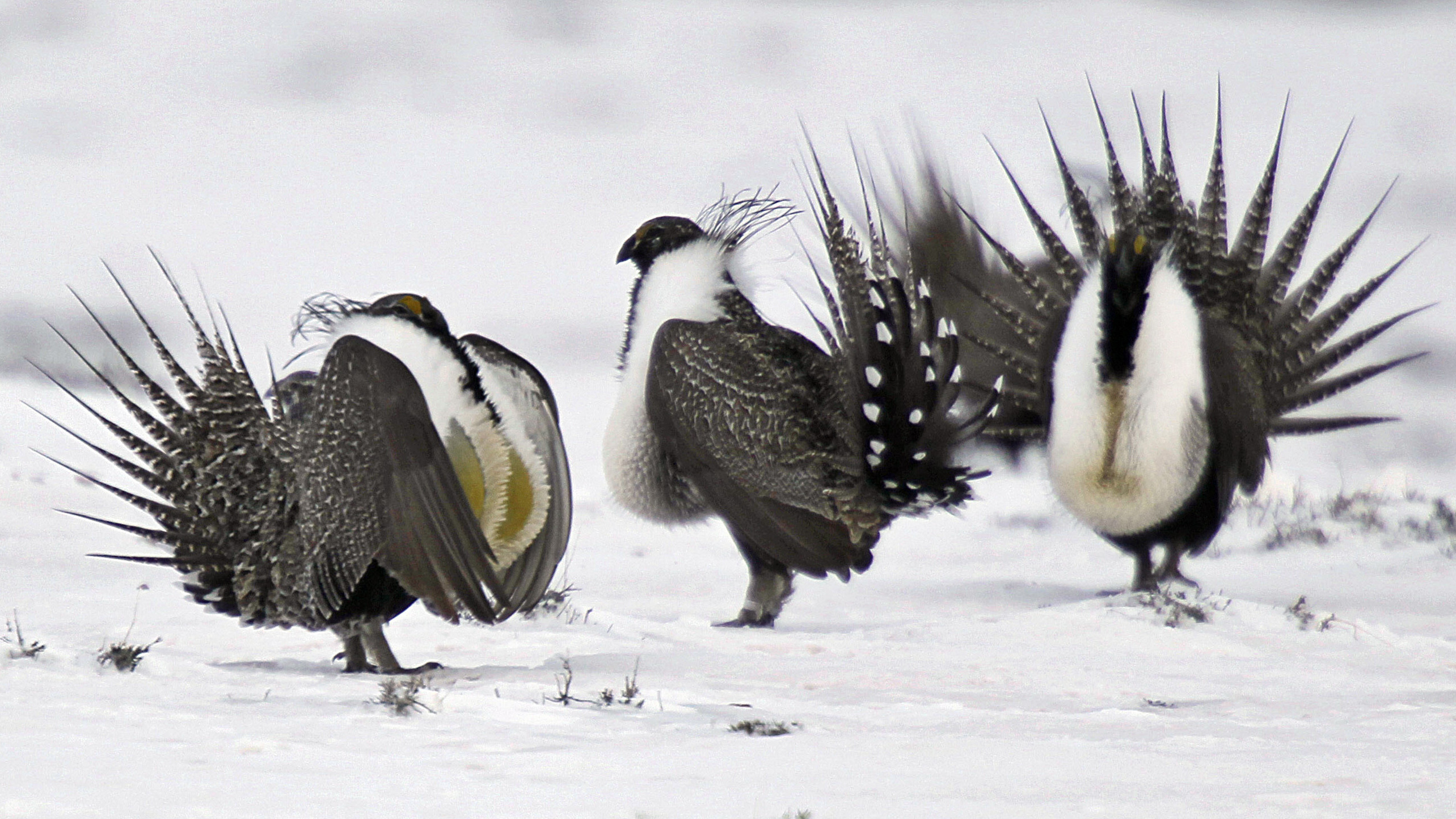
On his first day in office, President Joe Biden promised to review how the Trump administration’s actions encouraged oil and gas exploration near the habitat of a signature Western bird, and imperiled its future.
Those reviews are now underway.
The Bureau of Land Management this month announced it would re-evaluate the protected habitat for the greater sage-grouse, a buoyant bird with a guttural call found across the West, including northwest Colorado.
The species and its sagebrush habitat have faced an ongoing decline, threatened not just by oil and gas drilling, but also extreme weather worsened by climate change, including wildfires, drought and heat waves, according to the agency.
A federal management plan for grouse habitat was adopted in 2015 but faced pressure under the Trump administration; conservationists accused the Interior Department of disregarding those commitments by leasing priority lands for oil and gas drilling. The former administration attempted to weaken the bird’s protections for fossil fuel extraction several times, but was blocked by federal judges.
Now, the BLM will take into account the increasing stress of climate change on the bird’s habitat and consider changes to the 2015 management plans. That includes more than 900,000 acres of priority habitat in northwest Colorado conserved by the federal government, according to data from the U.S. Fish and Wildlife Service.
Bureau of Land Management representatives did not respond to multiple requests for comment.
Colorado counties are also updating their own conservation plans. Garfield County commissioners earlier this month voted to expand the species’ protected habitat, 77 percent of which is privately owned, according to the county. Its plans will inform the larger efforts by the state and federal agencies.
“There was a big change between these maps and there was a lot of give and take in the process,” Commissioner Tom Jankovsky said in a statement. “This is a good plan. It’s strong and something we can lean back on.”
The BLM will accept public comment on the sage-grouse management plan until Feb. 7.
On Friday, the U.S. Department of the Interior released a report of the federal oil and gas leasing program, another review pledged by Biden on his first day.
The report found several failures within the system, including charging outdated royalty rates for parcels, underestimating the environmental impacts to land and water, and leasing millions of acres that do not produce oil or gas.
The findings cite a recent report released by Taxpayers for Common Sense that the federal government missed out on $12.4 billion from oil and gas drilling last decade because of its low royalty rates. The report asks to increase those rates, as well as “avoid nomination or leasing of low potential lands and instead focus on areas that have moderate or high potential for oil and gas resources.”
As of last year, oil and gas companies held 3,339 leases to drill on federal land in Colorado, the third-highest amount behind New Mexico and Wyoming, according to BLM data. Those leases encompassed 2.4 million acres of public land.









